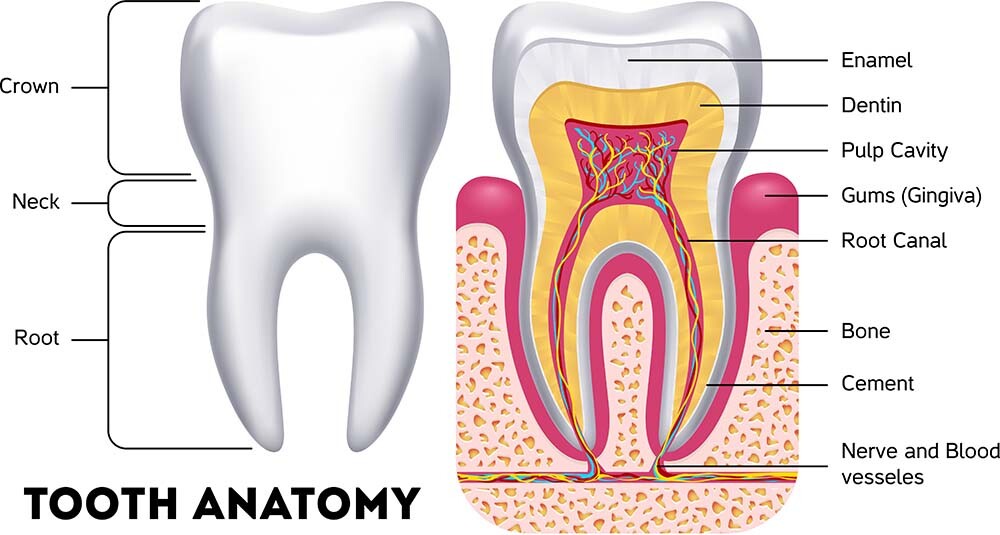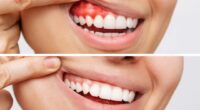Tooth decay is an age-old concern that continues to perplex many, leading to a multitude of myths and misconceptions that persist in popular culture. For years, it has been widely believed that sugar is the sole culprit behind cavities, a notion that simplifies a far more intricate issue.
Beneath the surface of that seemingly straightforward explanation lies a complex interplay of factors, from dietary choices and oral hygiene to the roles of bacteria and even genetic predisposition. In this article, we will delve deep into the shadowy realm of tooth decay, uncovering the truths that often get lost amid the noise of misinformation.
Prepare to challenge your understanding and rethink what you thought you knew about the root causes of cavities—because its time to separate fact from fiction in the battle against tooth decay.
Understanding Tooth Decay: The Basics

Tooth decay, often seen as a mere inconvenience, is a complex battle ignited at the intersection of bacteria, acid, and diet. At the heart of this process lies plaque, a sticky biofilm composed of bacteria that forms on tooth surfaces.
When we consume sugary or carbohydrate-rich foods, these bacteria feast and produce acids that erode enamel, the hard outer layer protecting our teeth. Left unchecked, this decay can progress, leading to cavitation and a host of oral health issues ranging from sensitivity to severe pain.
What complicates the matter further is that not all individuals are equally susceptible; genetics, oral hygiene practices, and dietary choices all play pivotal roles in one’s risk. Understanding these fundamentals is crucial for dispelling myths and adopting preventive measures against cavities.
Myths vs. Facts: Common Misconceptions About Cavities

When it comes to cavities, a multitude of myths can cloud our understanding of this common dental issue. One prevalent misconception is that only sugary foods lead to tooth decay; while sugar does play a significant role, its not the sole culprit.
In fact, carbohydrates from bread, fruits, and even certain starchy snacks can contribute to the decay process if oral hygiene is neglected. Another myth suggests that once a cavity forms, its no big deal—after all, it’s just a little hole.
This couldn’t be further from the truth; untreated cavities can lead to severe pain, infection, and even tooth loss. Additionally, many believe that cavities are inevitable with age, but this is largely untrue; with proper care, including regular dental visits and good oral hygiene, individuals of all ages can maintain healthy teeth.
Recognizing these facts over myths is crucial in empowering ourselves to take proactive steps against tooth decay.
The Role of Bacteria in Tooth Decay

Bacteria play a pivotal role in the development of tooth decay, functioning as both culprits and allies in the oral cavity. These microscopic organisms, particularly Streptococcus mutans, thrive on the sugars we consume, producing acids as a byproduct of their metabolic processes.
This acidic environment begins a relentless assault on tooth enamel, gradually eroding its protective layer. However, the relationship between bacteria and tooth decay is not entirely villainous; some bacteria can help maintain oral health by outcompeting harmful strains.
The balance, therefore, is delicate—too much sugar feeds the decay-causing bacteria, while poor oral hygiene fosters an environment ripe for cavity formation. It’s a complex interplay that underscores the importance of awareness and proactive care in our daily dental routines.
Conclusion
In conclusion, understanding the true causes of tooth decay is essential for maintaining optimal oral health. By debunking common myths surrounding cavities, we can better educate ourselves about the factors that contribute to dental issues.
It’s clear that while sugary foods and poor hygiene play significant roles, other elements such as genetics and certain medications also contribute to cavity formation. Recognizing the importance of preventive care, products like Dentavim can play a vital role in safeguarding our teeth against decay. Embracing accurate information and effective oral care practices empowers us to take control of our dental health and ultimately reduce the risk of cavities in the future.




